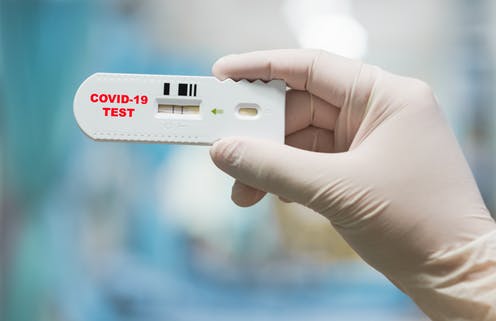Zimbabwe will soon be able to detect new coronavirus cases at its borders following the arrival of mobile test laboratories in the country.
Strive Masiyiwa, African Union Special Envoy for the mobilisation of test kits and personal protective equipment (PPE) for medical workers said he acquired the laboratories to help Zimbabwe deal with the rising number of Covid-19 cases.
The Southern African country, which is experiencing its worst economic crisis in a decade, is struggling to deal with the deadly coronavirus pandemic that has so far claimed 26 lives and affected over 2 000 people.
“A few weeks ago someone made a presentation to me on a new Technology for T-Testing. I immediately spotted its potential to help African countries at borders and airports. It can also help airlines. It is called a Mobile Laboratory,” he said on Friday.
“So I acted. We put it on the Africa Medical Supplies Platform (AMSP) so that every African country can buy. Several African countries have now ordered the system for their borders. I ordered them using my own money; five laboratories for US$150 000 for the border between Zimbabwe and South Africa.”
Masiyiwa added that he then dispatched teams to the border post and, working in collaboration with Zimbabwe’s Health Ministry and the Immigration department, have built a full laboratory and staffed it.
“Although the work was done by teams from Econet’s engineering teams working with our Ambulance business Medical Air Rescue Services (MARS) it is for Free as part of our own efforts to end this pandemic. Our plan is to put such systems at all border posts and airports so that people can goods can move quickly.
“Instead of waiting five days for results, they can get them within 30 minutes,” he said.
Currently, returnees from neighbouring countries are placed in quarantine centres where they are monitored and tested for Covid-19 before being released to their families.
The process has been marred with challenges with some returnees overstaying beyond the stipulated period due to a shortage of test kits.
The latest development comes after President Emmerson Mnangagwa said the country could not afford to be complacent given the fact that neighbouring South Africa was recording an exponential rise in cases, and now ranks fifth globally in terms of infections.
As a result, Mnangagwa announced a raft of stricter lockdown measures including imposing a curfew and imploring all non-working sections of the population to stay at home, except for purposes of securing food, water and health services, as a way to curb rising cases of Covid-19.
The president also reduced operating hours for businesses, which are now running from 8 am to 3 pm from the usual 4:30 pm, with the exception of providers of essential services, while only registered small and medium enterprises are allowed to operate and must adhere to World Health Organization (WHO) Covid-19 regulations.
Zimbabwe first imposed a total lockdown at the end of March, which had been gradually eased over the past months as more sectors of the economy opened up.

